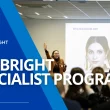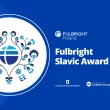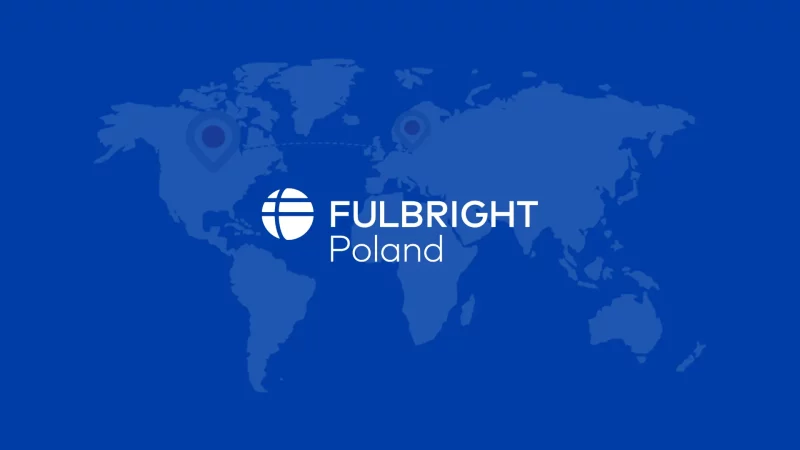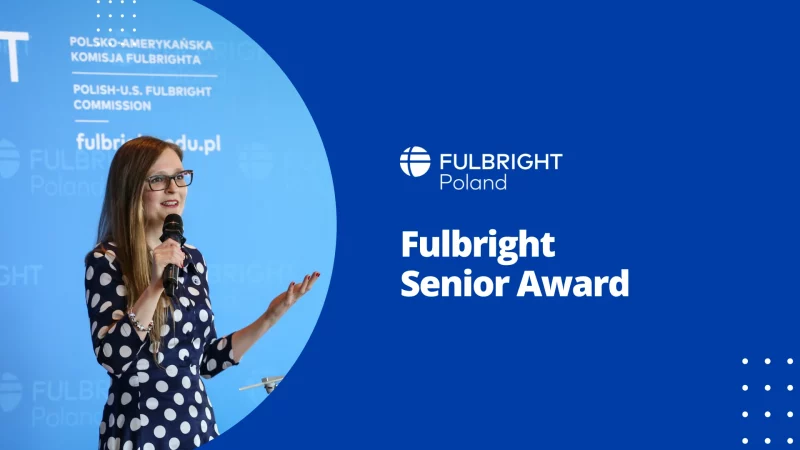For the 2021-22 academic year Polish-U.S. Fulbright Commission has a pleasure to host three Fulbright Global Scholar Award grantees. The Fulbright Global Scholar Award allows U.S. academics and professionals to engage in multi-country, trans-regional projects. As a truly worldwide award, U.S. scholars are able to propose research or combined teaching/research activity in two to three countries with flexible schedule options.
To see grantees’ profiles, tap on their names below:
Who I am…
I am the William R. Kenan Jr. Professor of Modern European History at Stetson University. I earned my BA at Bowdoin College and PhD at Harvard University. My recent monograph, Hitler’s Monsters: A Supernatural History of the Third Reich (Yale, 2017; paperback 2018), offers the first comprehensive study of the supernatural in Nazi Germany and has been translated into Italian, Polish, Czech, Croatian, and Estonian (with Chinese and Russian editions appearing next year). I’ve published four other books and edited volumes, and my articles have appeared in journals such as Central European History, German History, and The Journal of Contemporary History. My research and writing fellowships include the Fulbright Foundation; Alexander von Humboldt Foundation; the German Historical Institute; the German Academic Exchange Service; the Krupp Foundation; and Harvard University’s Program for the Study of Germany and Europe.
My Fulbright grant focuses on…
When the »Jewish Question« is discussed by historians, it is almost always examined as a prelude to the Holocaust – what the Nazis called the »Final Solution [Endlösung]« to the »Jewish Question [Judenfrage]«. My project asks the question: What were the various conceptions and »solutions« to the (Nazi) »Jewish Question« in the period before the »Final Solution«? To what degree did other European and non-European states help define, determine, or oppose these conceptions of the »Jewish Question« and its various solutions, and what were the ethnonational and geographic, political-institutional, cultural and intellectual, and socioeconomic constraints?
I decided to apply for Fulbright because…
The Jewish Historical Institute, Polish Center for Holocaust Research, and Polish National Archives in Warsaw have extensive collections of primary and secondary sources on the development of Central and East European policies toward the “Jewish Question” before Spring 1941, including Polish efforts to facilitate Jewish emigration to Palestine, Warsaw’s negotiations with France regarding Jewish settlement in Madagascar, and the Nisko Plan envisioning a “Jewish reservation” near Lublin. The Collegium Civitas in Warsaw is a perfect host because of its commitment to bringing history to bear on contemporary questions of national identity, European integration, and migration in Poland and the European Union.
After completing my Fulbright grant, I would like to…
First, I hope to complete an academic monograph and cluster of academic articles along the lines of my grant proposal within five years of returning from Poland. Second, in its global and transnational approach, my work in Poland (as well as Israel and France) will invigorate my teaching and expand my own (as well as my institution’s) professional and scholarly networks. Third and finally, I hope the experiences I gain during my time in Poland will help enhance my home institution’s commitment to Jewish Studies, a program I recently helped conceive and initiate and would like to build over the next few years.
Who I am…
I am a geologist and vertebrate paleontologist at Appalachian State University in Boone, North Carolina, USA specializing in Triassic (~250-200 million year old) microvertebrates (tiny bones and teeth, most less than 1 cm long). I have more than two decades’ experience studying these fossils in North America, and have collected fossils on two continents courtesy of previous visits to Argentina. My research interests are in understanding the diversity of past life on Earth, and how that diversity evolved to become what we see today. As a professor, I teach courses on the history of life and physical evolution of the planet, and take students into the field for their first field experiences collecting fossils.
I grew up in Oxford, Ohio, and received a BS in Geology at Denison University, also in Ohio. My MS and PhD are from the University of New Mexico, and I managed a collection of over 45,000 cataloged fossils at the New Mexico Museum of Natural History and Science before starting at Appalachian State University in 2005.
My Fulbright grant focuses on…
After earth’s largest mass extinction event 250 million years ago the surviving lineages would evolve into dinosaurs and other groups that persist to this day, such as mammals. Poland has a sensational record of the small Triassic animals that evolved as part of recovery from this extinction event, fossils which will serve as a “Rosetta Stone” for studying fossils of similar age, such as those from a site in South Africa, which was my previous stop on this Fulbright grant.
I decided to apply for Fulbright because…
Paleontologists must go where the fossils are, as animals that lived millions of years ago could not have known that their fossils would end up in museums scattered around the world. During the Triassic, the continents were connected to form Pangea, and so the animals Polish scientists have described will likely have very close relatives that remain undescribed in other places, such as South Africa. Fulbright provides the perfect vehicle to collaborate with international colleagues and time travel to Pangea, and my Flex award allows me to see the collections in both Poland and South Africa.
After completing my Fulbright grant, I would like to…
Continue collaborating with other vertebrate paleontologists to describe fossils from Poland and South Africa, and compare them to others from the United States and beyond. I look forward to publishing results and sharing my experiences back at Appalachian.
Who I am…
I am the Associate Dean for Global Initiatives and Engagement, College of Liberal Arts and Human Sciences and Professor of Political Science at Virginia Tech. My research analyzes the role of gender in the political arena including women national leaders. Select books include: Shattered, Cracked and Firmly Intact: Women and the Executive Glass Ceiling Worldwide (Oxford University Press 2013) which offers a comprehensive analysis of women, gender, and national leadership positions; Women Presidents of Latin America: Beyond Family Ties? (Routledge 2016), a comparative analysis of women presidents in Latin America and Senhora Presidenta: Women’s Empowerment and Disempowerment in Brazil: The Rise and Fall of President Dilma Rousseff, which examines the first female president of Brazil (with Pedro dos Santos, Temple University Press 2021). I have authored dozens of articles and book chapters related to women in politics around the world. I am frequently quoted and featured as an expert in high profile media outlets including The Atlantic, The Washington Post, The New York Times, the PBS Newshour, The Guardian, The Christian Science Monitor, VOX, Politico, and NPR.
My Fulbright grant focuses on…
How gender shapes perceptions of women in power, and if electing the first woman paved the way for other women to follow.As visible symbols of women in office, do women national leaders positively shape views regarding women’s inclusion in executive spaces and create opportunities for future women leaders?
I decided to apply for Fulbright because…
As a global scholar, I applied to the Fulbright Foundation Global Scholars Program to conduct fieldwork in a diverse array of countries (Poland, Iceland, and New Zealand) that have been governed by at least three different women national leaders. Countries with three women leaders prove exceedingly rare and present a rigorous test of the possible virtuous circle of women’s executive leadership. Poland has had three women occupy prime ministerial positions. I will conduct semi-structured in-person interviews with approximately 35 political insiders including academics, journalists, representatives from relevant feminist/women’s organizations, current and former parliamentarians and cabinet ministers and possibly women who have served as prime ministers.
After completing my Fulbright grant, I would like to…
To complete my other fieldwork (I have completed my fieldwork in Iceland and plan on going to New Zealand in 2023. The main goal is to complete a new manuscript focusing on the potential virtuous circle of women’s executive leadership worldwide.
Polish institutions interested in collaboration with the grantees please contact Paulina Kubylis.








